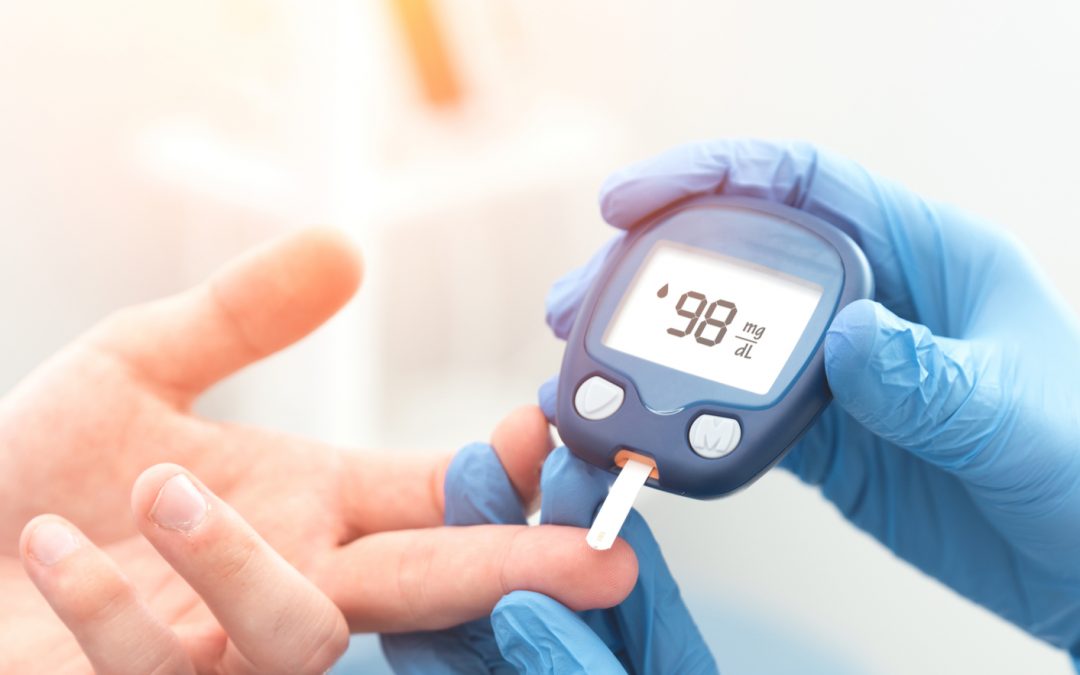November is National Diabetes Month. Diabetes is a rising endocrinology condition nationally and locally. South Carolina’s diabetes incidence is considered an epidemic with approximately 576,211 people in South Carolina, or 14.1% of the adult population, diagnosed with diabetes.
In addition, 1,315,000 people in South Carolina, 37.2% of the adult population, have prediabetes with blood glucose levels higher than normal but not yet high enough to be diagnosed as diabetes. At Magnolia Endocrinology we see the prediabetes population as an opportunity to reverse the risk of developing a chronic, long-term diabetes condition. If you are exhibiting symptoms of diabetes, we urge you to make an appointment to be evaluated and begin treatment measures to take control of your health.
Understanding the facts is the best way to keep yourself and your loved ones healthy and informed. Here are 10 Facts You Should Know about Diabetes from our providers at Magnolia Endocrinology.
1. More than 34 million people in the United States have diabetes. (CDC, 2020)
An estimated 1 in 10 Americans, or 10% of the U.S. population, was diagnosed with diabetes in 2018. The incidence continues to rise.
2. Prediabetes is higher than normal blood sugar levels.
Prediabetes is categorized as an above-normal blood sugar level that is not enough to qualify as diabetes. Also known as “impaired fasting glucose,” untreated prediabetes can lead to the development of Type 2 diabetes.
3. There are two major forms of diabetes: Type 1 and Type 2.
Type 1 diabetes is an autoimmune disease characterized by a lack of insulin production. Type 2 diabetes is the body’s ineffective use of insulin.
4. Diabetes is not caused by eating too much sugar.
Although it is a commonly held belief that diabetes is only caused by excessive sugar consumption, this claim is false. While an unhealthy diet high in processed sugars contributes to Type 2 diabetes through weight gain and increased body fat, obesity, and family history are the main risk factors connected to diabetes. Nutrition is a critical aspect of managing diabetes effectively.
5. Diabetes can be developed during pregnancy.
About 9% of women develop insulin resistance during pregnancy, known as gestational diabetes. In many cases, gestational diabetes is limited to the time of pregnancy, resolving itself following birth. The good news is that gestational diabetes can be treated, especially if it’s found early in the pregnancy. Controlling gestational diabetes is the key to a healthy pregnancy.
6. Gestational diabetes doesn’t transfer to your baby.
A mother with gestational diabetes will not necessarily have a diabetic child. It is important to work with your obstetrician and endocrinologist to manage your condition and make the best choices for your baby’s health.
7. Type 2 diabetes is more common than Type 1 diabetes.
Almost 95% of people with diabetes have Type 2. Type 2 diabetes often develops in people 45 and older, although there has been a rise in Type 2 diabetes in children and adolescents.
8. People with diabetes can eat sweets.
People with diabetes can enjoy their favorite sweets in moderation, as long as proper glucose testing and portion control are performed.
9. Type 2 diabetes can be prevented.
Type 2 diabetes can be prevented with a balanced diet and regular exercise. It can even be reversed with these methods to lose excess weight in conjunction with blood sugar monitoring and medications prescribed by your doctor. Magnolia Endocrinology offers programs to reverse the effects of Type 2 diabetes over time.
10. A symptom management plan is key.
Life with diabetes can be made better with healthy lifestyle choices and benchmark monitoring. Having a personalized plan that fits your schedule and goals allows you to manage your diabetes symptoms. We can help.
Magnolia Endocrinology treats Type 1, Type 2, and Gestational diabetes with personalized treatment and lifestyle plans. Our goal is to help our patients become successful in understanding how to manage their endocrinology condition(s) on a daily basis in order to live as healthy of a life as possible. Visit our website or call 843-900-0495 to schedule an appointment and start managing your diabetes today.
